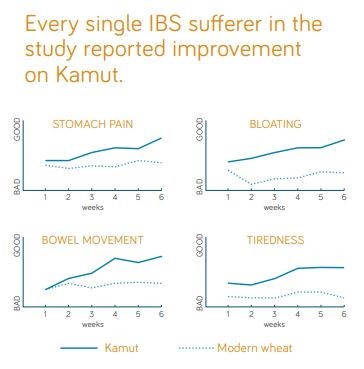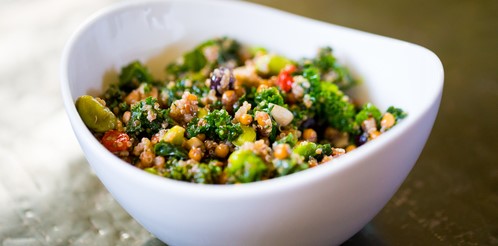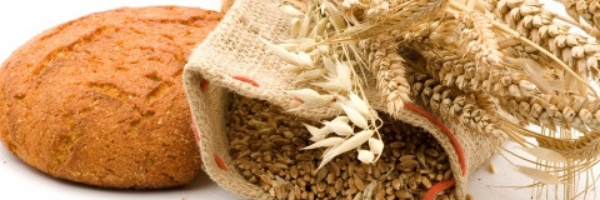Randomized controlled trials have put these hypotheses to the test. The first tested the effects of a gluten-free or placebo diet (giving glutenGluten is a protein found in the cereals wheat, rye and barley. Obvious sources of gluten in the diet are bread, pasta, breakfast cereals and… containing or gluten-free bread) for four weeks on 60 IBS sufferers, measuring bloating, abdominal pain and tiredness. There was a strong reduction in bloating and abdominal pain in those on the gluten-free versus placebo diet, and a return of symptoms on reintroducing gluten1. This confirms the results of several other studies.
Professor Francesco Sofi, at the University of Florence, had a hunch that it might not be wheat per se, but gluten and other proteins have been changed in modern wheat compared to that of ancient wheat that is driving bloating and IBS. So he devised an RCT involving 20 people with IBS to test his theory2.
The participants were given foods (bread, pasta, biscuits, bulgur) made from either modern wheat or ancient organic Kamut® ‘khorosan’ wheat. This is the same wheat that was eaten thousands of years ago and is genetically much simpler compared to modern wheat and spelt. They didn’t know which kind of food they were eating and they were randomly assigned to eating either modern wheat products or Kamut products for six weeks at a time. Then, after a break for six weeks, the type of wheat they were eating was switched and they continued to eat the new diet for another six weeks. Their symptoms of IBS were meticulously recorded.
During the modern-wheat weeks they had no improvement, and continued to suffer from abdominal pain, bloating, tiredness and irregular and unhealthy bowel movements. However, when they were unknowingly eating Kamut, everything got better. They reported significantly less bloating, abdominal pain, irregularity and tiredness, with a much higher overall measure of quality of life. Remarkably, every single person in the study reported benefit.

Also, convincingly, blood markers of inflammation, inflammatory cytokines, which are usually raised in people with IBS, all reduced significantly (IL-6 by 36·2 %; interferon-g (IFN-g) by 33·6 %; macrophage inflammatory protein-1b by 38·9 %).
Mary is a case in point. She had suffered with bloating, wind and urgent trips to the loo, for the previous four years – seemingly after eating wheat. “I assumed it was gluten intolerance, but it wasn’t because I even reacted to some gluten-free flours, especially cornflour. I also react to spelt, but when I started eating Kamut wheat, to my amazement, I had absolutely no problem. I can eat a whole loaf of Kamut bread in a day and not suffer any ill health at all. My health has returned and I feel alive once more. Last week I ate some regular bread and reacted immediately.”

Roasted chickpea and lemon tabbouleh
My favourite food is Kamut bulgur. Why? Because it is very low GL, cooks in 8 minutes and tastes delicious. I hardly ever use rice anymore because Kamut bulgur is easier, tastier and much lower GL with only 7 GLs per 60gram serving – about half a small glass – which makes I’d say almost too big a portion.
I also only ever eat Kamut pasta for the same reasons. Almost all the world’s kamut is bought by the Italians to make pasta because it is undoubtedly the most delicious, as well as being wholegrain and low GL.
references
1. Zanwar, V.G., et al. ‘Symptomatic improvement with gluten restriction in irritable bowel syndrome: a prospective, randomized, double blinded placebo controlledtrial‘, Intestinal Research. 2016 Oct; 14(4):343–350.
2. Sofi, F., et al. ‘Effect of Triticum turgidum subsp. turanicum wheat on irritable bowel syndrome: a double-blinded randomised dietary intervention trial‘. Br J Nutr. 2014 Jun; 111(1):1992–9.


Comments
Join the Conversation on our Facebook Page